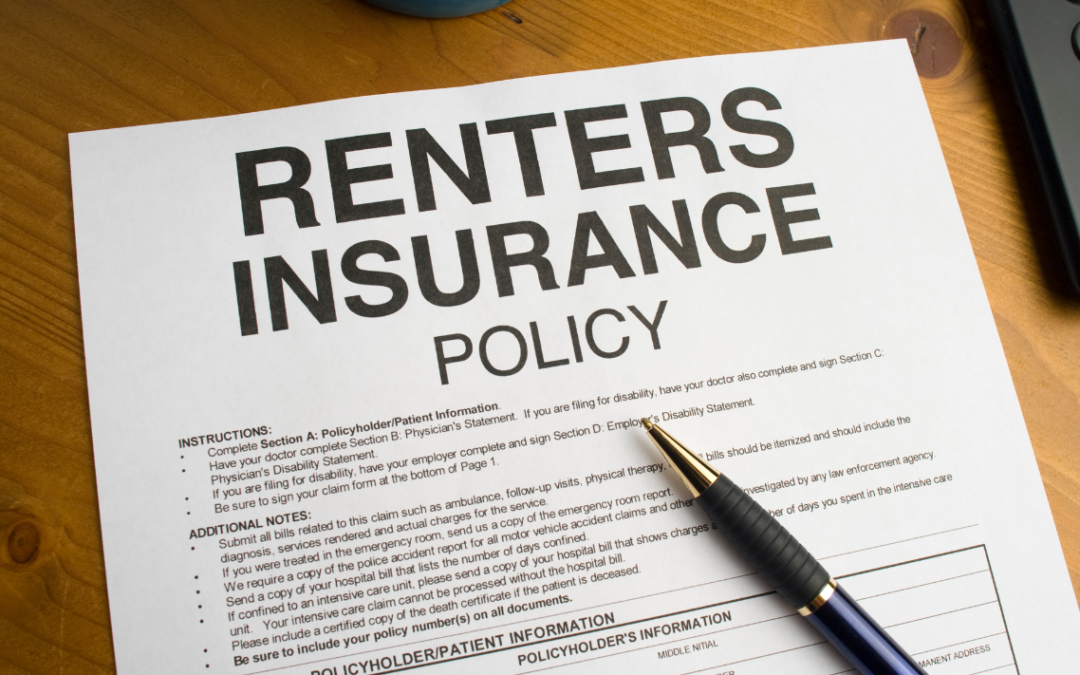Renting a home or apartment in Washington state provides flexibility and freedom without the responsibilities of homeownership. However, renters must still take measures to protect their belongings and ensure coverage in case of accidents or unforeseen events. Renters insurance is designed to provide this protection, but many renters are unsure about what their policy covers, especially regarding damage to the landlord’s property. This article will explore the ins and outs of renters insurance and clarify whether it covers damage to the landlord’s property, helping you make informed decisions about your coverage.
Answering The Question: Does Renters Insurance Cover Damage to the Landlord’s Property?
What is Renters Insurance?
Renters insurance is a policy designed to protect tenants from financial losses due to unexpected events such as theft, fire, or certain types of water damage. It typically includes three main components:
- Personal Property Coverage: This covers the cost of repairing or replacing your personal belongings if they are damaged or stolen.
- Liability Coverage: This protects you if you are found legally responsible for injuring someone else or damaging their property.
- Additional Living Expenses (ALE): This covers the cost of temporary housing and other related expenses if your rental unit becomes uninhabitable due to a covered event.
While renters insurance provides valuable protection for tenants, it’s important to understand the limitations and specific coverages of your policy.
Personal Property and Liability
First and foremost, renters insurance primarily focuses on safeguarding the tenant’s personal property and liability. If your belongings are damaged due to covered perils such as fire or theft, your renters insurance policy typically helps cover the costs of replacement or repair. Additionally, renters insurance provides liability coverage, which can help protect you if you accidentally damage someone else’s property or if someone is injured in your rental unit.
Coverage for Personal Belongings
Imagine a scenario where a fire breaks out in your apartment, damaging your furniture, clothing, and electronics. With renters insurance, you can file a claim to help cover the cost of replacing these items. Similarly, if your belongings are stolen during a burglary, renters insurance can provide financial assistance for their replacement.
Liability Coverage
Liability coverage is another critical aspect of renters insurance. Suppose a guest trips and falls in your rental unit, sustaining an injury that requires medical treatment. In this case, your renters insurance policy can help cover their medical expenses and protect you from potential lawsuits. Furthermore, if you accidentally damage a neighbor’s property, such as causing a water leak that affects their apartment, liability coverage can assist in covering the repair costs.
Does Renters Insurance Cover Damage to the Landlord’s Property?
The question of whether renters insurance covers damage to the landlord’s property is multifaceted and depends on the type of damage and the circumstances under which it occurred. Generally, renters insurance does not cover damage to the structure of the building itself, as this is typically covered by the landlord’s insurance policy. However, there are situations where renters insurance can come into play:
- Accidental Damage: If you accidentally cause damage to the landlord’s property, such as breaking a window or causing a fire, your renters insurance liability coverage may help cover the cost of repairs. For example, if you unintentionally start a kitchen fire that damages your rental property walls, your liability coverage can help pay for the repairs.
- Negligence: If the damage is a result of negligence on your part, renters insurance may still provide coverage. For instance, if you forget to turn off the water and it overflows, causing damage to the flooring, your liability coverage can help cover the repair costs. It’s important to note that intentional damage is not covered by renters insurance.
- Guest-Related Incidents: If a guest in your rental unit accidentally damages the landlord’s property, your renters insurance liability coverage may also extend to cover this. For example, if a friend accidentally knocks over a decorative item that belongs to the landlord, your policy can help cover the cost of replacing it.
- Shared Responsibility: In some cases, the responsibility for damages may be shared between the landlord and the tenant. For instance, if a pipe bursts due to a lack of maintenance by the landlord, but your belongings are damaged as a result, the landlord’s insurance would cover the structural damage, while your renters insurance would cover your personal property.
What Renters Insurance Typically Does Not Cover
It’s equally important to understand what renters insurance does not cover to avoid any surprises:
- Structural Damage: Damage to the structure of the building, such as the walls, roof, or foundation, is typically covered by the landlord’s insurance policy. Renters insurance does not cover these types of damages.
- Wear and Tear: Normal wear and tear on the rental property is not covered by renters insurance. This is considered part of the landlord’s responsibility to maintain the property.
- Pest Infestations: Damage caused by pests such as rodents or insects is usually not covered by renters insurance. Preventing and addressing pest issues is generally the responsibility of the landlord.
- Intentional Damage: Any damage that you intentionally cause to the landlord’s property is not covered by renters insurance. Intentional acts of vandalism or destruction are excluded from coverage.
How to Choose the Right Renters Insurance Policy
Selecting the right renters insurance policy involves understanding your needs and evaluating different coverage options. Here are some tips to help you choose the right policy:
- Assess Your Personal Property: Take an inventory of your personal belongings to determine how much coverage you need. Consider the value of items such as electronics, furniture, clothing, and other personal items.
- Evaluate Liability Coverage: Ensure that your policy includes sufficient liability coverage to protect you in case of accidents or injuries that occur in your rental unit.
- Consider Additional Coverage: Depending on your location and specific risks, you may want to add additional coverage for natural disasters, such as earthquakes or floods. Discuss these options with your insurance agent to determine what additional coverage you may need.
- Compare Quotes: Obtain quotes from multiple insurance providers to compare coverage options and prices. Look for a policy that offers the best value for your specific needs.
- Review the Policy Details: Carefully review the details of any policy you are considering. Pay attention to coverage limits, deductibles, and exclusions to ensure that you understand what is and isn’t covered.
Contact Hood Insurance Agency Today For Renters Insurance Services In Washington State
Renters insurance is an essential tool for protecting your personal property and providing liability coverage in the event of an accident or unforeseen event. At Hood Insurance Agency, we are dedicated to helping residents of Washington state find the right renters insurance policy to meet their needs. Our experienced agents are here to answer your questions and guide you through the process of selecting and purchasing renters insurance.
Don’t wait until it’s too late—ensure your peace of mind with comprehensive renters insurance coverage. Contact Hood Insurance Agency today to learn more about our renters insurance services and how we can help protect your belongings and financial well-being. Call us now or visit our website to get a free quote and start your journey towards better protection for your rental home.

